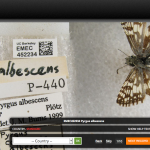Marine biologists have identified a family of genes that make some corals more resilient to unusually high temperatures, providing hope that the devastation of the world’s reef-building coral population can be reversed.
Reef-building corals are a critical part of marine ecosystems worldwide, providing shelter to one-quarter of all marine species and providing shoreline protection against storms. However, their high sensitivity to changes in the ocean environment makes coral reefs extremely fragile.
Just in the past two decades, human activities have been responsible for destroying nearly half of the world’s reef-building corals. Overfishing, coastal pollution, rising ocean temperatures and rising ocean acidity have all been implicated in coral’s demise.
Yet, scattered among acres of dead, bleached coral, scientists occasionally find handfuls of colonies that are surviving. One location with a clear distinction between heat-tolerant and heat-sensitive colonies is Ofu Island in the American Samoa. Heat-tolerant colonies were found in areas that experience large variations (42 degrees F) in daily temperature. Researchers with Stanford University’s Hopkins Marine Station analyzed the genetic responses of the heat-tolerant and heat-sensitive colonies, each comprised of the same Acropora hyacinthus species, in an effort to discover the molecular mechanisms underlying heat resistance.
The researchers devised a lab experiment where they exposed some samples of Acropora hyacinthus coral from the heat-tolerant and heat-sensitive colonies to a control temperature (84 degrees F) and exposed other samples to an elevated temperature (95 degrees F). They then used an RNA-sequencing technique to measure gene expression in corals from each colony under each temperature condition.
Both heat-tolerant and heat-intolerant corals responded to the stress of the elevated temperature by altering the expression of hundreds of genes. A crucial difference was that in the heat-tolerant corals, 60 of those genes – involved in such functions as tumor suppression, immune response, cell adhesion and regulation of apoptosis or “cell death” – were already “turned on” prior to the experiment. That is, those genes are always activated in the heat-tolerant corals.
It would seem that just being on-the-ready to reduce the effects of heat-induced stress is enough to separate the species that can survive extreme conditions from those that cannot. The researchers published their findings last week in the early online version of the Proceedings of the National Academy of Science.
Of course, there is a long history of mapping out sets of genes that confer resilience to environmental stressors. To some extent, humans have been doing this with our crops for millennia, first with selective breeding and more recently with direct genetic modification.
Whether scientists can genetically modify at-risk corals to better tolerate myriad human-generated abuses such as increased ocean temperature, or whether corals with naturally acquired tolerance are selectively introduced to devastated environments, this study offers the possibility that coral reef ecosystems around the world can be rebuilt.








Comments are closed.